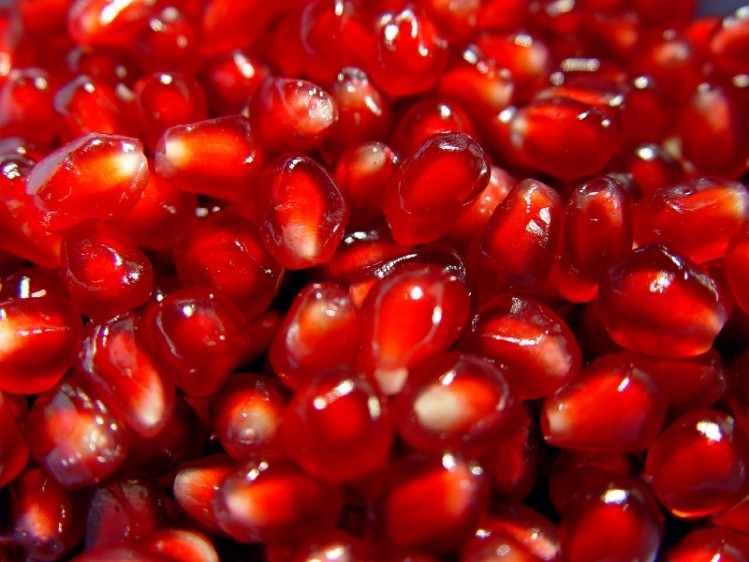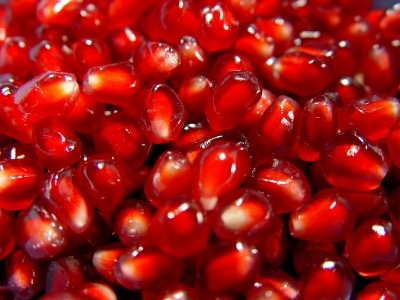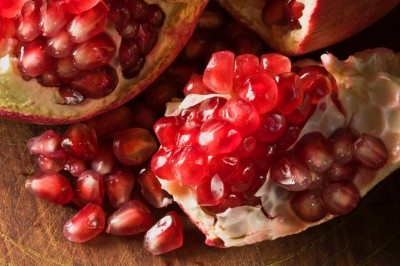Microbiota may determine if pomegranate extracts are beneficial or not

When we consume ellagitannin-containing foods our microbiota metabolize the compounds differently. Like we see with soy isoflavones and equol, depending on the make-up of your gut microbiota an individual may produce urolithin A, urolithin B, or they may not produce either (non-producers).
New data published in Clinical Nutrition indicated that healthy overweight-obese individuals with a urolithin B producing phenotype were at an increased risk of cardiometabolic disease, while urolithin A producers with metabolic syndrome and under statin treatment actually had a lipid profile like that of the healthy non-overweight people.
“In the new era of ‘personalized nutrition’, stratification of subjects in relation to their UMs [urolithin metabotypes] could supply an additional tool for CVD risk assessment that must be replicated in large cohorts,” wrote the researchers.
Study details
The researchers analyzed data from 20 healthy, normal weight people consuming 30 grams per day of walnuts, 49 healthy but overweight-obese individuals ingesting 450 mg per day of a pomegranate extract, and 25 people with metabolic syndrome (MetS) consuming a variety of nuts (15 g-walnuts, 7.5 g-hazelnuts and 7.5 g-almonds/d).
If an individual produced urolithin A, they were classed as urolithin metabotype A (UM-A), if they produced urolithin B they were urolithin metabotype B (UM-B), and if they were non-producers, they were urolithin metabotype 0 (UM-0).
Results showed that cardiometabolic risk factors were observed in the overweight-obese subjects. Urolithin-A was positively and statistically correlated with anti-atherogenic apolipoprotein A-I and intermediate-HDL-cholesterol. On the other hand, urolithin-B and isourolithin-A (characteristic from UM-B) were positively correlated with a range of cardiometabolic risk factors, including total-cholesterol, LDL-cholesterol, apolipoprotein B, VLDL-cholesterol, IDL-cholesterol, and oxidized-LDL.
When the researchers limited their analysis to people with MetS they found that only MetS patients with a UM-A phenotype on statin treatment showed a modification of their lipid profiles to those observed in normal weight people, whereas a poorer response to statins was observed in UM-B phenotype people.
“UMs are potential [cardiometabolic risk] factors biomarkers,” wrote the reseachers. “Overweight-obese individuals with UM-B are at increased risk of cardiometabolic disease, whereas urolithin-A production could protect against [cardiometabolic risk] factors.
“[F]urther research is warranted to explore whether the impact of lipid-lowering therapy or dietary interventions with ellagitannin-containing foods such as pomegranate or walnuts on cardiometabolic risk factors differs according to individuals' UMs,” they concluded.
Potential anti-aging activity
Researchers from the École Polytechnique Fédérale de Lausanne (EPFL) in Switzerland reported last year that urolithin A, a compound generated by gut microflora from ellagitannins, may improve mitochondrial function by stimulating mitophagy, a process by which damaged mitochondria are recycled to permit a renewal with healthy mitochondria.
These potent beneficial effects were observed in C. elegans, mammalian cells and rodents.
The study’s co-authors founded a start-up company, Amazentis, which has developed a method to deliver finely calibrated doses of urolithin A. Amazentis is presently evaluating urolithin A in a first human clinical trial with results expected in 2017.
Source: Clinical Nutrition
Published online ahead of print, doi: 10.1016/j.clnu.2017.03.012
“The gut microbiota metabolism of pomegranate or walnut ellagitannins yields two urolithin-metabotypes that correlate with cardiometabolic risk biomarkers: Comparison between normoweight, overweight-obesity and metabolic syndrome”
Authors: M.V. Selma, et al.















